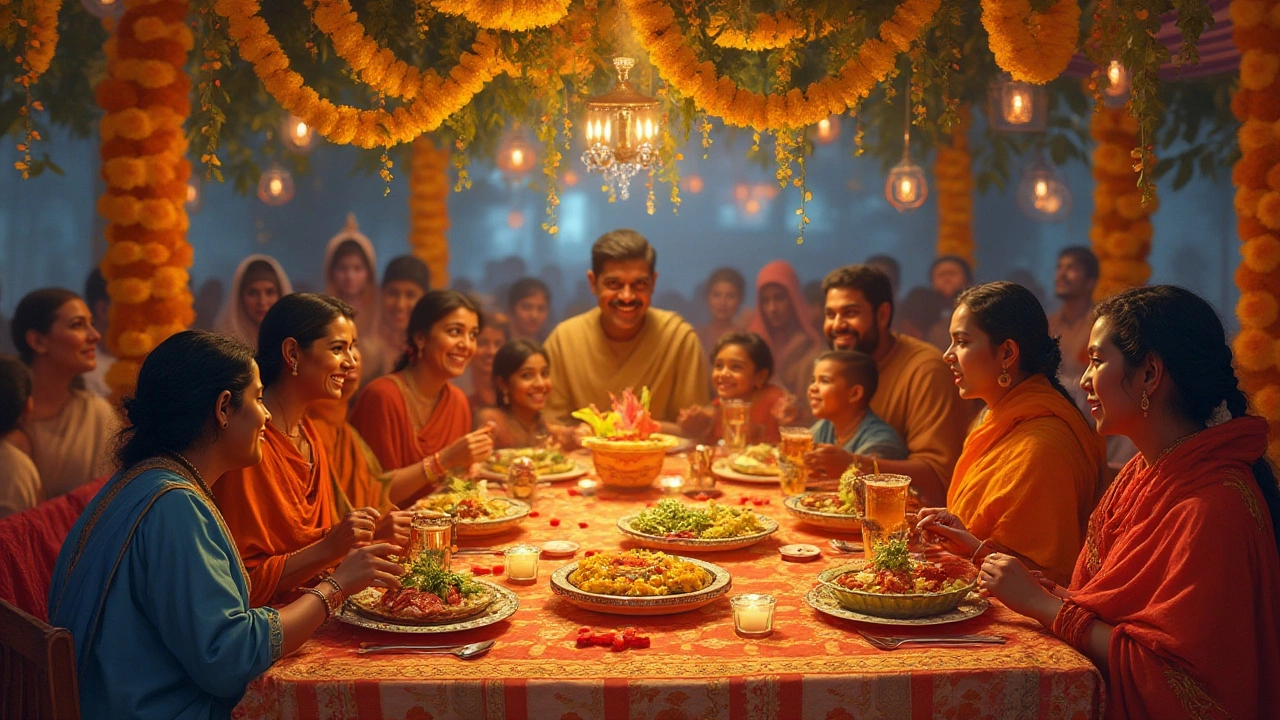Religion and Indian Food: How Faith Shapes What We Eat
India’s kitchens are full of flavors, but many of those flavors come with a story. Religion isn’t just a belief system; it decides which spices you use, which dishes you serve, and even when you eat. If you’ve ever wondered why certain foods are missing from a festive spread or why specific sweets appear at every celebration, this guide has the answers.
From the sweet cravings of Muslims during Eid to the pork‑free plates of Hindu households, each faith brings its own set of rules. Understanding these rules helps you cook with respect and confidence, whether you’re feeding a mixed‑faith family or experimenting with new recipes.
Common Religious Food Rules in India
Most Indian religions have clear ideas about what’s allowed and what’s not. Muslims often avoid pork and alcohol, but they love rich sweets like sheer khurma during Ramadan and Eid. Hindus typically steer clear of beef and, in many regions, pork as well. They also practice fasting on certain days, which means no grains or specific ingredients.
Jains go a step further – they avoid root vegetables like onions and garlic because pulling them up can harm tiny organisms. Buddhists may adopt a vegetarian diet, especially on sacred days. Knowing these basics lets you plan meals that fit most religious occasions without a lot of guesswork.
Practical Kitchen Tips for Faith‑Friendly Cooking
Start by keeping separate utensils for meat and veg‑only dishes. A simple set of labeled cutting boards and knives prevents cross‑contamination, which many believers consider essential.
When a recipe calls for an ingredient that’s off‑limits, swap it out. For example, replace pork in a biryani with chicken or paneer, and use coconut oil instead of ghee if you’re cooking for someone who avoids dairy during a fast.
Seasonings can also be tweaked. If a dish traditionally uses asafoetida (hing), but you’re cooking for a Jain friend, skip it and add a pinch of roasted cumin for depth.
Finally, always ask if there’s a specific way a dish should be prepared. Many families have heirloom methods that respect their faith, and following them shows genuine respect.
By keeping these tips in mind, you’ll enjoy cooking Indian meals that honor religious traditions while still delivering bold flavor. So next time you plan a dinner, think about the faith behind each bite – it makes the food taste even better.
Exploring Vegetarianism in Indian Spiritual Practices
Certain religions, mainly originating from India, embrace a predominantly vegetarian lifestyle, deeply rooted in their spiritual teachings and practices. Hinduism, Jainism, and Buddhism are renowned for their encouragement of a vegetarian diet, which aligns with principles of non-violence and respect for all living beings. This article delves into the traditions and beliefs of these religions and how they influence dietary choices among their followers. Discover how these spiritual paths shape not only food habits but also cultural and ethical landscapes.
